Since I've visited Philippines for the first time in my life during my big business tour 2024, I would like to give you a review of major sustainable (circular economy) and plant-based news as my gratitude for this region.
Philippines ranked #92 in Sustainable Development Report 2024
Philippines are on 92 place in Sustainable Development Report 2024.
Top 10 proudly occupied by Finland, Sweden, Denmark, Germany, France, Austria, Norway, Croatia, UK, and Poland.
Top 10 proudly occupied by Finland, Sweden, Denmark, Germany, France, Austria, Norway, Croatia, UK, and Poland.
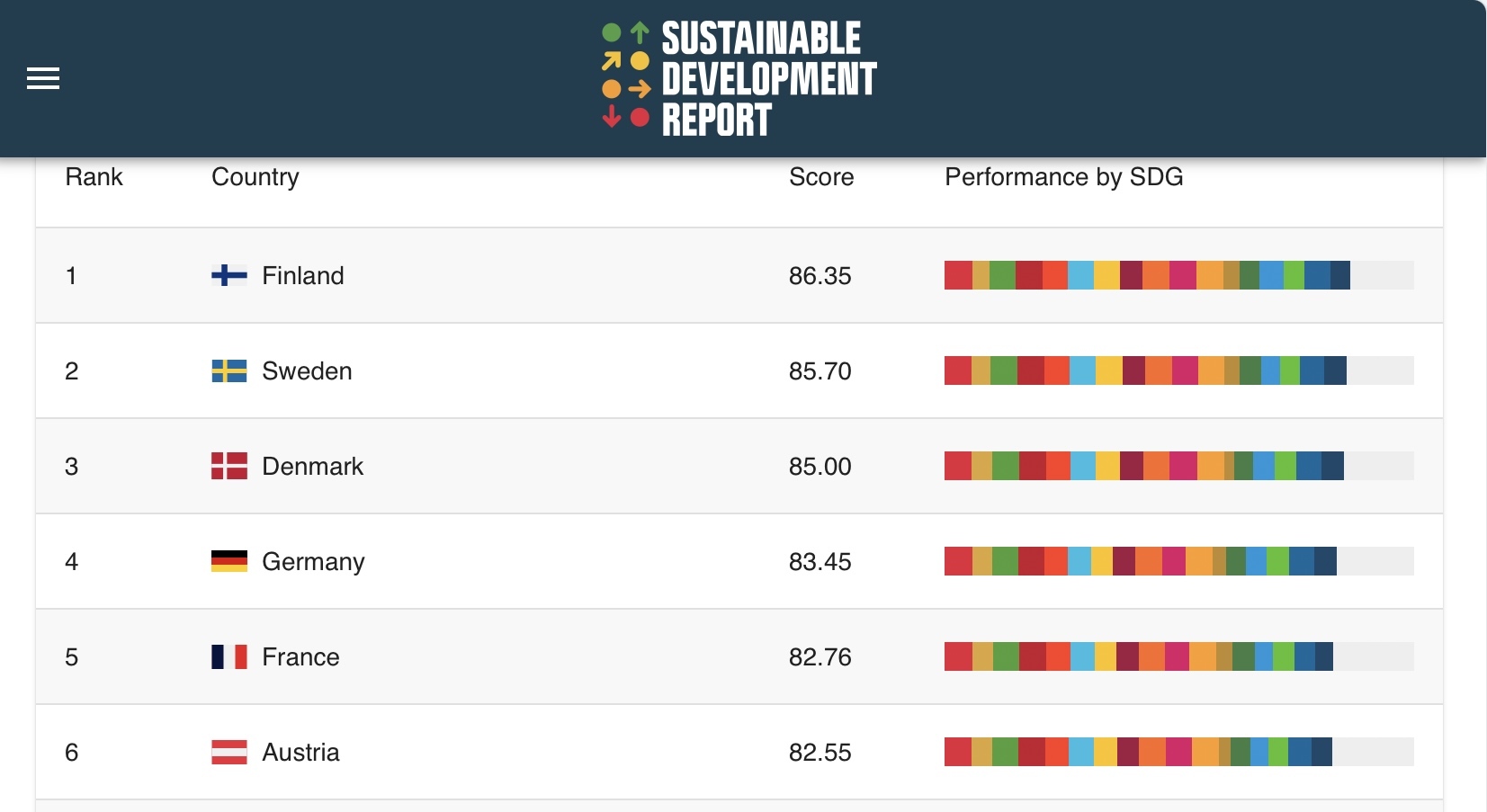
To explore data and download a report you can here.
Germany is on 4th place in this ranking. I live & work in Germany.
You may book my consultation here with special prices for Philippines.
Germany is on 4th place in this ranking. I live & work in Germany.
You may book my consultation here with special prices for Philippines.
SDG's implementation in Philippines
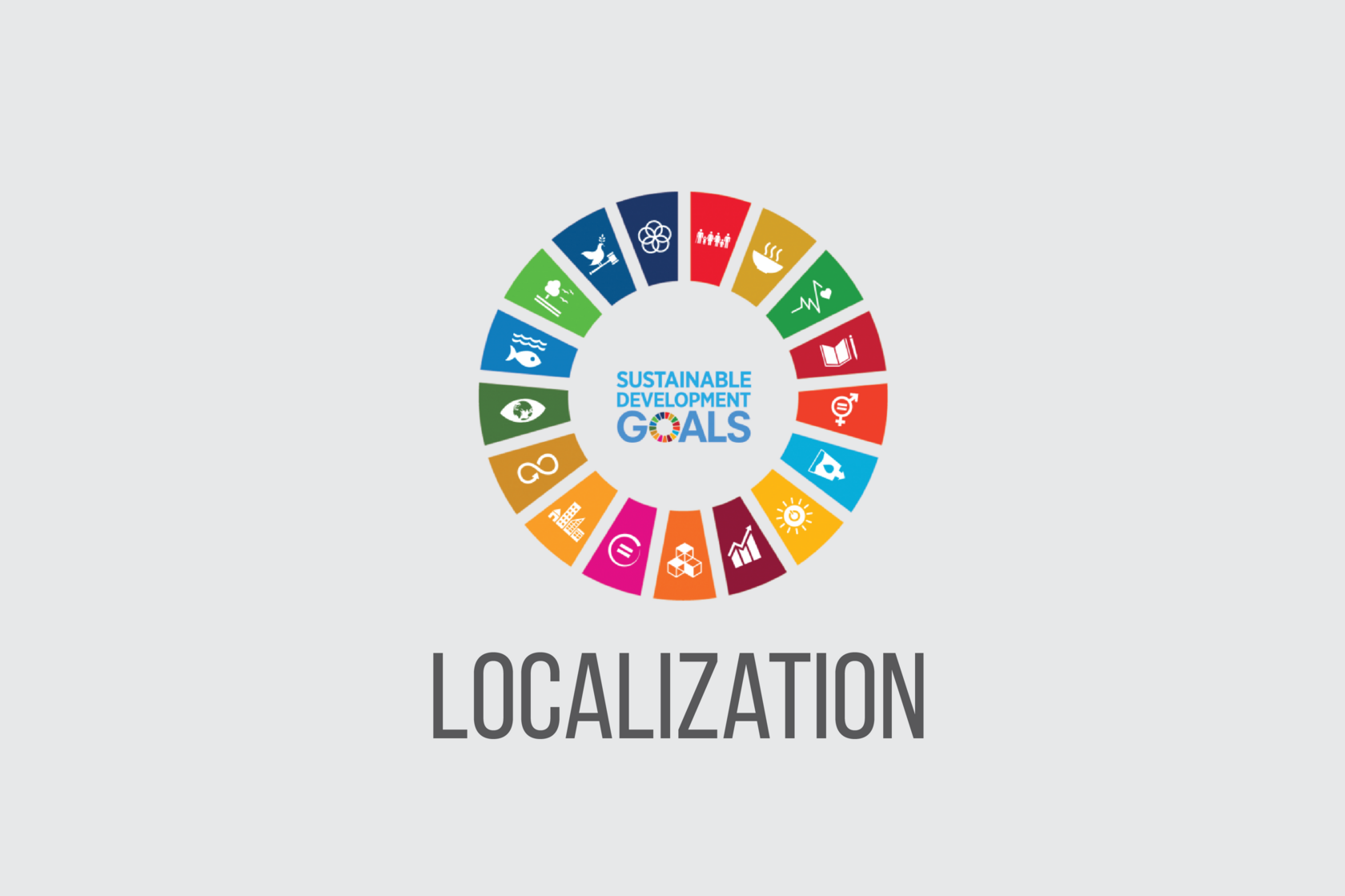
The attainment of the SDGs requires concerted, multi-sectoral and multi-stakeholder efforts both at the national and local levels. The implementation strategies required to achieve the SDGs which are found in the PDP and the subsequent sectoral plans are mainstreamed and localized through the Regional Development Plans (RDP) and Comprehensive Development Plans (CDP) at the regional and local level.
The Department of the Interior and Local Government (DILG) takes the lead in localizing the SDGs and has already conducted a series of regional and provincial workshops to strengthen the functionality of the local government units (LGUs) in increasing the awareness and support for both the AmBisyon Natin 2040 and the SDGs, and ensuring that they integrate such in their respective plans and programs.
As of March 2018, the planned workshops (excluding those located in ARMM) have been conducted in all the regions, 76 provinces, and 1,373 municipalities.
Please find the full report here.
The Department of the Interior and Local Government (DILG) takes the lead in localizing the SDGs and has already conducted a series of regional and provincial workshops to strengthen the functionality of the local government units (LGUs) in increasing the awareness and support for both the AmBisyon Natin 2040 and the SDGs, and ensuring that they integrate such in their respective plans and programs.
As of March 2018, the planned workshops (excluding those located in ARMM) have been conducted in all the regions, 76 provinces, and 1,373 municipalities.
Please find the full report here.
Don't miss the latest updates dated October 2024:
NEDA CONDUCTS WORKSHOP TO CRAFT FRAMEWORK FOR ACHIEVING SDGS
CENTRAL LUZON REGIONAL STAKEHOLDERS’ CHAMBER ON THE SDGS CONVENES ITS ORGANIZATIONAL MEETING
NEDA CONDUCTS WORKSHOP TO CRAFT FRAMEWORK FOR ACHIEVING SDGS
CENTRAL LUZON REGIONAL STAKEHOLDERS’ CHAMBER ON THE SDGS CONVENES ITS ORGANIZATIONAL MEETING
SDG Watch based on the Refined List of the Philippine SDG Indicators
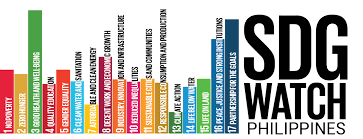
Release Date: Monday, January 15, 2024
The Philippine Statistics Authority (PSA) released the second round of updating of the SDG Watch in 2023. This includes data received from various sources as of 08 November 2023.
The number of indicators in the SDG Watch, which are based on the updated list of Philippine Sustainable Development Goals (SDG) indicators1 in 2023, has a total of 157 indicators.
The Philippine Statistics Authority (PSA) released the second round of updating of the SDG Watch in 2023. This includes data received from various sources as of 08 November 2023.
The number of indicators in the SDG Watch, which are based on the updated list of Philippine Sustainable Development Goals (SDG) indicators1 in 2023, has a total of 157 indicators.
Read a full release and find the report (pdf) here.
Together with you, I look much forward to 2024 report.
Together with you, I look much forward to 2024 report.
Philippines pushes forwards on single-use plastic bag tax
The proposed law would introduce a levy of PHP 100 per kilogram of manufactured or imported single-use plastics bags
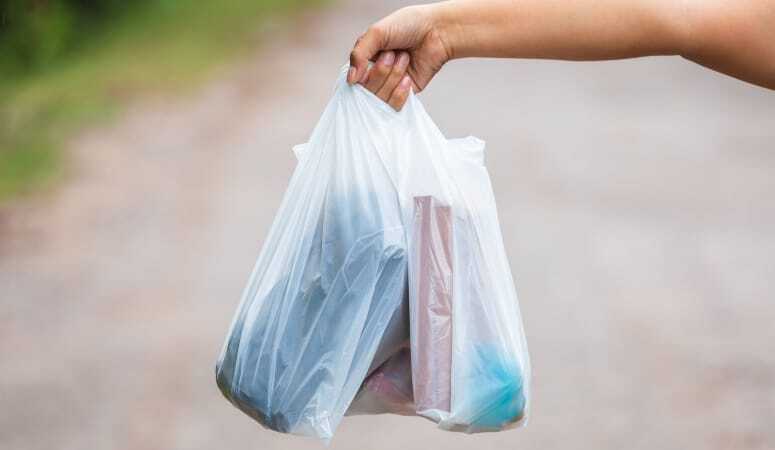
The government of the Philippines continues to push forward with its proposal to introduce an excise tax on single-use plastic bags. The draft bill only covers single-use plastics bags that are not recycable, such as “ice” (primarily used for selling ice), “labo” (thin film bags used for wrapping unpacked fresh food), or “sando bags” (grocery store bags), with or without handles.
The PHP 100 levy on manufacturers and importers would be imposed with a 4% annual indexication beginning on the third year of implementation. The measure is estimated to generate PHP 31.52 billion in revenues between 2025 to 2028.
The PHP 100 levy on manufacturers and importers would be imposed with a 4% annual indexication beginning on the third year of implementation. The measure is estimated to generate PHP 31.52 billion in revenues between 2025 to 2028.
P&G settled plastics recyclability claims lawsuit in the Philippines
Procter & Gamble Philippines and consumer groups have reached an amicable settlement on February 14th over alleged false or misleading plastics recyclability advertisements
In November 2022, a group of 32 Filipino consumers filed a lawsuit against P&G, Unilever, Coca-Cola, Pepsi, Nestlé, Colgate, and Universal Robina Corp before the Philippian Department of Trade and Industry – Fair Trade Enforcement Bureau (DTI-FTEB). Only P&G entered a dialogue with the complainants, which allege false or misleading recyclability advertisement on plastic packaging.
The complainants, which included environmental activists and people involved in fishing activities, claimed that the use of recycling symbols like the Möbius loop, the tidy man, and expressions like ‘recycle me’, ‘recyclable’, ‘recycle’, and ‘recycle ready’ on the company’s product packaging is false or misleading because not all plastic is recyclable.
The Philippines produces an estimated 2.7 million tonnes of plastic waste annually. It also accounts for the largest share of global plastic waste discarded in the ocean at 36.38%, according to 2019 data.
To help tackle this issue, the Philippines introduced an EPR scheme in July 2022, which requires, amongst other things, large enterprises to set up recovery and recycling systems for its rigid and flexible plastics, as well as plastics bags and polystyrene.
The complainants, which included environmental activists and people involved in fishing activities, claimed that the use of recycling symbols like the Möbius loop, the tidy man, and expressions like ‘recycle me’, ‘recyclable’, ‘recycle’, and ‘recycle ready’ on the company’s product packaging is false or misleading because not all plastic is recyclable.
The Philippines produces an estimated 2.7 million tonnes of plastic waste annually. It also accounts for the largest share of global plastic waste discarded in the ocean at 36.38%, according to 2019 data.
To help tackle this issue, the Philippines introduced an EPR scheme in July 2022, which requires, amongst other things, large enterprises to set up recovery and recycling systems for its rigid and flexible plastics, as well as plastics bags and polystyrene.
However, on a present day I haven't seen any collecting station of rigid plastic in Supermarkets of Philippines!
In Europe consumers give away the plastic, metal, and glass bottles in every supermarket and biomarkets. The received coupons can be redeemed at cashier.
The same PCR (post-consumer recycled) system must be set up in Philippines asap!
New report on Southeast Asia’s appetite for alternative proteins
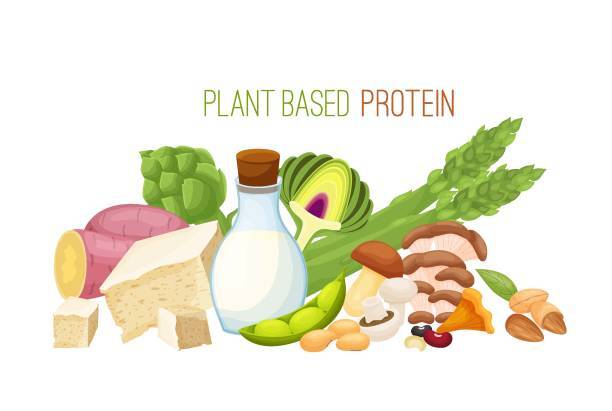
GFI APAC (Good Food Institute Asia-Pacific) released the results of a first-of-its-kind survey, which gauged consumer perceptions of conventional and plant-based meat in six key Asian markets: Singapore, Thailand, Malaysia, Indonesia, Vietnam, and the Philippines.
And the results may surprise and amaze you. Interest in plant proteins is high!
But unlike in some other regions, the Southeast Asian consumers yet most enthusiastic about consuming plant-based meat as an opportunity for protein diversification, not substitution.
New data reveals excellent opportunities for vegan activists, consumer education and plant-based market growth in this region.
And the results may surprise and amaze you. Interest in plant proteins is high!
But unlike in some other regions, the Southeast Asian consumers yet most enthusiastic about consuming plant-based meat as an opportunity for protein diversification, not substitution.
New data reveals excellent opportunities for vegan activists, consumer education and plant-based market growth in this region.
Read more top takeaways of this survey in blog.

